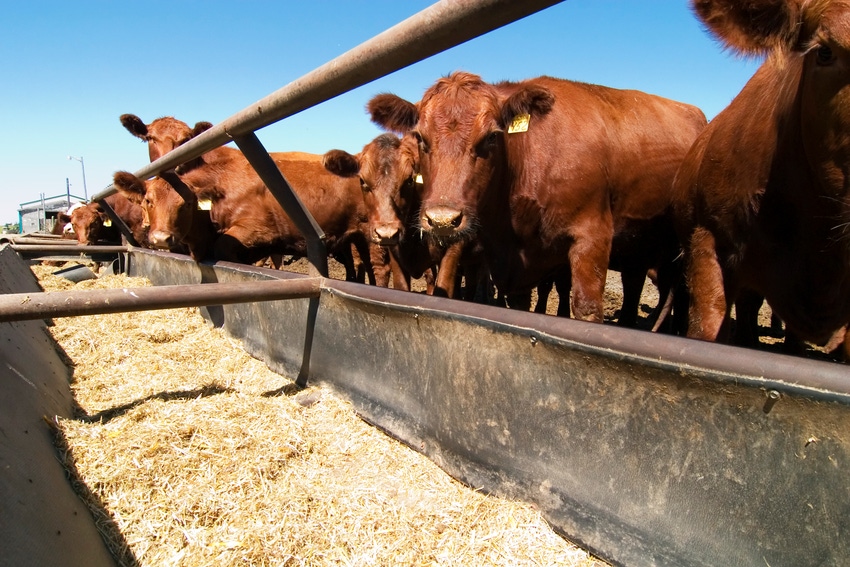Red seaweed reduces methane without influencing steer growth
Five-month study finds sustained methane reductions with no changes in animal health or beef quality.
September 29, 2020

The University of California-Davis (UC-Davis) has found that a supplement derived from red seaweed (Asparagopsis taxiformis) may lower cattle feed requirements by 14% without diminishing beef steers’ weight gain, according to an announcement from Blue Ocean Barns.
The pre-published study, posted on biorxiv.org, also confirmed past research with dairy cows that the seaweed supplement reduced methane production from digestion by more than 80%, according to Blue Ocean Barns, which has developed a proprietary, natural feed supplement from red seaweed.
The UC-Davis study demonstrated that the methane reductions were sustained during the entire 147-day trial, which was longer and included more cattle than any prior study of the seaweed’s impact, the announcement said. Studies of other methane-reducing technologies have shown that the digestive systems of cattle typically adapt, making those additives less effective over time.
In addition, the new study showed that the health and safety of the cattle were not compromised, Blue Ocean Barns said, noting that, in a taste test conducted as part of the study, participants reported consistent flavor and tenderness compared with conventional beef.
Blue Ocean Barns said its product, which would be included at less than 0.3% of a cattle ration, prevents hydrogen from binding to carbon atoms during digestion and creating methane.
“We have evaluated several additives for methane reductions over the past decade, and the seaweed demonstrated significant savings we haven’t seen before,” said lead researcher Dr. Ermias Kebreab, director of the UC-Davis World Food Center and Sesnon endowed professor in the department of animal science. “The opportunity to equip meat and dairy producers with a way to offer climate-positive products while also reducing their highest cost -- feed -- is a win for farmers, consumers, the animals and the environment.”
Blue Ocean Barns said while it provides unrestricted funding to the UC-Davis Animal Nutrition & Environment Modeling Applications Laboratory and provided input in the conception and design of the work, the company did not influence the results or interpretation of the study.
Blue Ocean Barns, based in Redwood City, Cal., is a global technology player in the production of red seaweed. Backed by investment from Valor Siren Ventures and financial support from the Foundation for Food & Agriculture Research, Blue Ocean Barns is scheduled to make its product commercially available by the end of 2021.
You May Also Like



